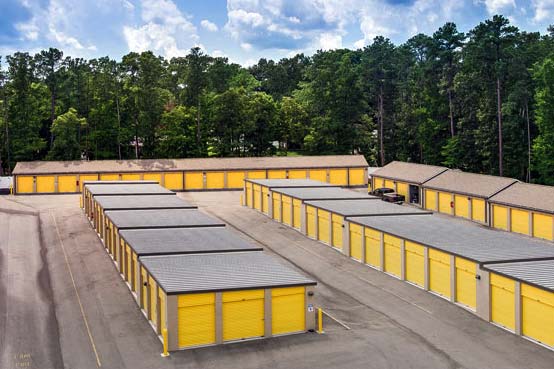Investing in real estate often calls to mind traditional properties like homes or business buildings, but a more unique opportunity has appeared in the last few years: self-storage facilities. As urban living spaces become smaller and the desire for decluttering rises, storage facilities have become more popular. This trend presents a unique chance for savvy investors to build wealth in a market that is often overlooked.
The appeal of storage unit investments lies in their ease and capability for generous profits. With storage units airway heights reduced entry cost compared to alternative real estate ventures, these units can offer consistent cash flow and a solid demand driven by multiple factors. Whether for personal use, business storage, or temporary needs, the growing reliance on storage units reveals a promising path for those looking to expand their investment portfolios and secure financial independence.
Grasping Self-Storage Investments
Investing in self-storage facilities has risen as a rewarding opportunity within the real estate sector. In contrast to traditional residential or business properties, storage units provide a relatively low barrier to entry with considerable potential for profit. Investors find that storage facilities often boast high occupancy rates, low operating costs, and a steady demand driven by factors such as urbanization and the need for minimizing.
One of the main benefits of storage unit investment is its stability during financial fluctuations. During times of economic decline, individuals may seek temporary solutions for their belongings, choosing for storage units rather than moving into smaller living spaces or homes. This sustained demand can lead to stable revenue streams and the potential for appreciation over time, making it a more reliable investment compared to alternative real estate segments.
Additionally, the management management of storage facilities can be more straightforward than that of residential properties. Many owners decide to automate processes, minimizing the need for hands-on management. This allows investors to concentrate on scaling their business or venturing into additional avenues within real estate while still generating passive income through their self-storage investments.
Maximizing Profitability of Rental Spaces
To maximize profit from storage units, picking the ideal location is essential. Locations with elevated population density, notable rental demand, and limited self-storage options provide the optimal chances. Perform detailed market analysis to identify areas experiencing economic growth or those with a mobile population, like university cities or urban centers. Understanding the competition in the area is equally vital; ensure that your pricing and services match with local demand and expectations.
Improving the offerings of your storage units can also contribute to greater profits. Ponder offering climate-controlled units, round-the-clock access, and state-of-the-art security features to capture a broader clientele. In addition, providing adaptable rental agreements and multiple dimensions can accommodate diverse requirements. Incorporating features like moving supplies and car storage can additionally broaden your income sources and offer a full package for consumers.
Effective advertising techniques play a crucial role in boosting profit. Use web platforms, online communities, and regional marketing to connect with prospective clients. Building an attractive online site with user-friendly booking options and straightforward rates can simplify the customer experience. Establishing alliances with community businesses, including property agents or relocation services, can also create referrals, enhancing your rental space's visibility and revenue in the sector.
Steering Clear of Typical Pitfalls
Investing in storage units can be a rewarding venture, but it is essential to tackle it with care to steer clear of common errors. One of the main missteps is underestimating the importance of location. Just like conventional real estate, the effectiveness of a self-storage facility heavily depends on its location. Facilities in highly populated areas or near college campuses often attract more clients, while those in isolated locations may have difficulty to rent out their spaces. Conducting thoroughly researched market analysis before purchasing a facility can ensure you execute a sound investment.
Another common mistake is neglecting adequate management and maintenance. Self-storage facilities might appear easy to manage compared to different types of real estate, but they still require attention to detail. Ensuring that facilities are clean, safe, and properly maintained boosts customer satisfaction and loyalty. Moreover, having a strategic advertising plan is crucial for attracting new clients. Leveraging online platforms and community marketing can enhance awareness and generate sales.
Lastly, many owners fail to account for additional expenses that come with owning storage units. Beyond the initial investment, ongoing costs such as property taxes, insurance, utility bills, and maintenance can add up fast. It is necessary to formulate a detailed budget that factors in these costs to prevent cash flow issues. Understanding the entire financial status will enable you to take wise decisions and ensure the sustained prosperity of your storage unit investment.

